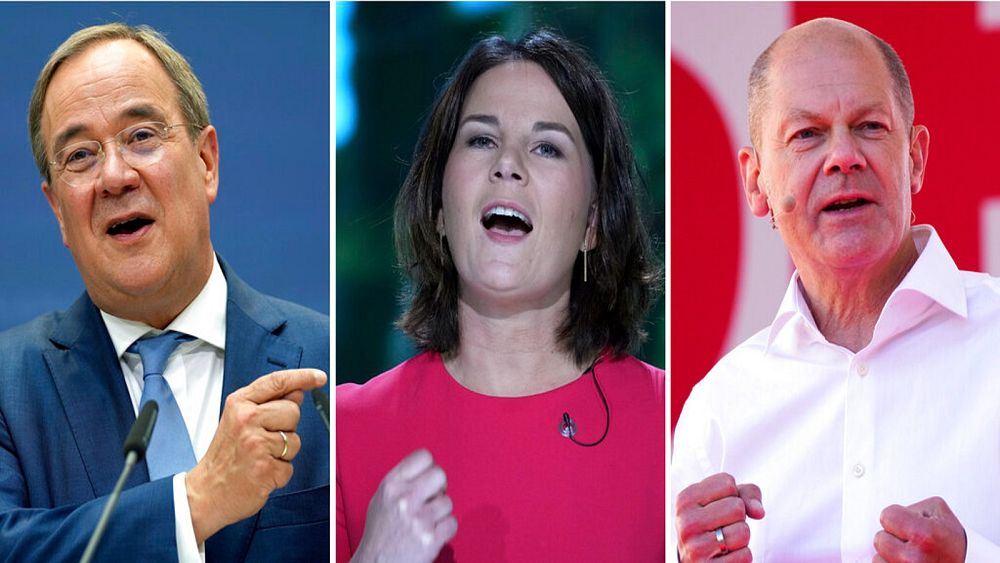
The German election today marks the end of an era as Angela Merkel bows out after 16 years. Who will succeed her? Will Olaf Scholz and his Social Democratic Party be able to translate a narrow poll lead into electoral success? And after Germany’s deadly floods earlier this summer, how much will the climate crisis influence voters?
Here is a summary of what you need to know so far, follow our live updates below.
19:24
Summary
- Germany is holding elections for a new parliament (Bundestag)
- Angela Merkel is standing down after 16 years.
- The new Bundestag will elect Merkel’s successor, likely from the party that wins the election.
- Social Democratic Party (SPD) were leading the opinion polls.
- Armin Laschet (CDU), Olaf Scholz (SPD) and Annalena Baerbock (Greens) vying to be next chancellor
- Polls open at 8h and close at 18h (CEST)
16:52
For starters, how does the German election system even work?
The Bundestag officially has 598 seats, although that number can fluctuate due to the parliament system. It is the only body that is elected directly by voters.
Here’s a more in-depth look at how the election system works.
16:49